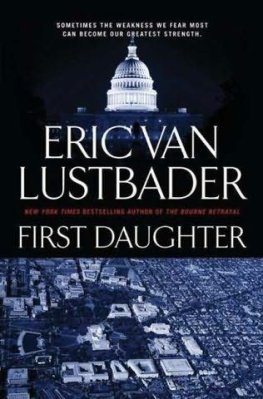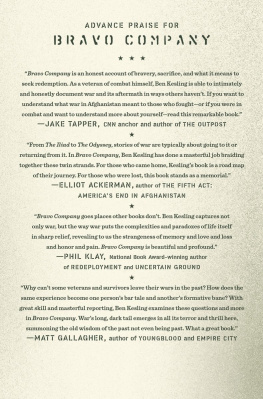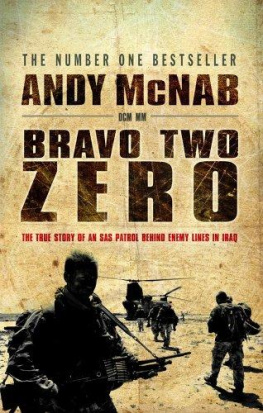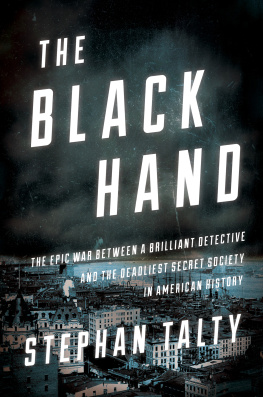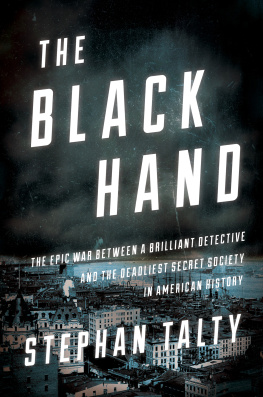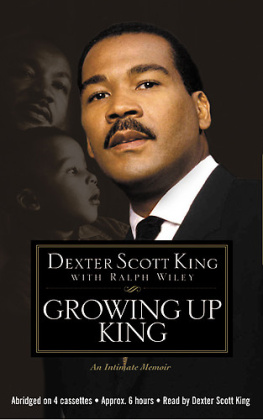Eric Van Lustbader
The Testament
This is a work of fiction. All of the characters, organizations, and events portrayed in this novel are either products of the author's imagination or are used fictitiously.
For Victoria
and My Poonies
INSPIRATION COMES IN MANY GUISES. MY THANKS TO:
Dorothy Dunnett's Niccolo series for introducing me to the history of Trebizond
The city of Venice
The Dictionary of Medieval Terms and Phrases by Christopher Core`don and Ann Williams and Keith
PROLOGUE
AUGUST, 1442- SUMELA MONASTERY, TREBIZOND
On a blazingly hot late afternoon in high summer, three Franciscan Gnostic Observatine monks foraged in the midst of their daily perimeter patrol. They were grateful for the dappled shade and the heavy emerald light as they stepped carefully through the dense woods surrounding the Sumela Monastery, where they currently hid. The monastery was an altogether fitting place for their forced and rather desperate retreat-it had been founded during the reign of Theodosius I by the Greek Orthodox, with whom the Order had a special bond.
Though the men wore the plain, undyed muslin robes of their ascetic order, they patrolled heavily armed with swords, daggers and longbows. They were Guardians, trained in weaponry and hand-to-hand combat as well as the words of Christ and St. Francis. It was their sacred duty to guard the other members of the Order, especially those of the inner circle who ruled the Order, the Haute Cour.
The brutal sun, on its slow journey to the horizon, had by this time heated even the normally cool mountain air, so that the Guardians' robes were shot through with sweat stains, spreading from their armpits and down the center of their broad, muscular backs. They moved in the same way they said their prayers three times a day-the way they held themselves, the wariness of eye and foot as they quartered the western wedge of tangled land under their jurisdiction, could only be described as ritualistic.
Nearing the seventh and final hour of their shift, their muscles ached, their vertebrae cracking now and again as they bent to examine some track or spoor to make certain that it was made by an animal and not by their fellow man. Their training demanded they be careful, as did the history of the Order, for so long under threat from the Pope and his strong mailed fist, the Knights of St. Clement of the Holy Blood. Since the time of the first crusade, which had been launched in 1095, the Knights had made the island of Rhodes their base. Danger arose in the Order's having secreted itself so close to the Holy Land, where its enemies teemed, but they well knew the wisdom in hiding in plain sight. Over the year and a half that the Order had been at Sumela, no Knight of St. Clement had ventured to the monastery, which was not and never had been in their domain. It belonged to the Emperor Justinian, and then to the Comnenos, the emperor-dynasty of Trebizond, on the southwestern shore of the Black Sea, with Anatolia and the highly lucrative camel route to Isfahan and Tabriz at its back, an eight-day journey by ship from Byzantium.
At the edge of a clearing, the three Guardians paused to take water and a bite of unleavened bread. Yet even in this moment of relative ease, their iron discipline forbade any talk, and their eyes in faces lined with tension were never at rest. As they chewed and swallowed, they scanned the glade into which the lowering hulk of the sun spilled ruddy light. Hands at their foreheads, they squinted into the glare.
Birds twittered and swooped, insects droned sullenly, butterflies and bees crisscrossed the glade. The air sat exhausted and sweating, beaten down by the sun glare. The Guardians' attention momentarily shifted as a brief rustling came from the underbrush perhaps fifty yards distant. They waited, immobile and staring, their hearts pounding as the sweat formed in the hollows of their necks and crept down their spines. The rustling came again, closer this time, and one of them went into a crouch, put fletched shaft to bowstring, pulling it back taut, the forged iron arrowhead aimed and ready.
A small form appeared, and the archer grinned in relief. Only a small mammal foraging through the underbrush. Another of the Guardians laughed under his breath, raised his hand to his companion's tautly arced bow, as if to lower it.
He never got the chance. A brief evil humming made itself heard above the drowsing chitter of the insects as a crossbow bolt flashed through the air. The Guardian, impaled through the chest, flew into shadow, his arms flung wide. His archer compatriot, crouched still, drew back his bow, frantically trying to draw a bead on the hidden enemy, but before he could loose his arrow, another bolt flew out of the sun's glare and pierced his neck. Flung onto his back by the force of the arrow, he lost his grip on the bowstring, and his arrow shot skyward in a crazy arc.
Fra Martin, spattered with his brothers' blood, dove for cover, drew his broadsword and gathered his wits about him.
His brothers were dead, both killed in a matter of seconds by a hidden assassin. But from the way they fell, he knew where the archer had secreted himself.
He now had a crucial decision to make. He could either circle his way forward, keeping to the shadows while he skirted the glare of the forest glade, engage the Knights and avenge the murders of his brothers, or he could discreetly withdraw, making all haste back to the monastery to warn the Magister Regens and to gain reinforcements with which to hunt the enemy. The sun glare within which the archer had so cleverly cloaked himself mitigated against immediate engagement.
However, if the archer was, indeed, a Knight of St. Clement, he had surely identified his prey as members of the Gnostic Observatine Order. If he escaped and returned to Rhodes with news of the Order's whereabouts, a veritable army would be sent against the monks. Then they would be facing an all-out assault, against which they surely could not stand. No, there was no time to seek reinforcements from within the monastery-he had to find the enemy now, identify him and kill him before he could inform the Knights of the Order's hiding place.
Fra Martin knew the forest well, remembered that just beyond the glade a sheer drop-off into the deep ravine, guarded on either side by naked cliffs and jagged boulders, snaked its way back to the treasure-laden city of Trebizond on the southern coast of the Black Sea. Picking his way to the left, he described a rough semicircle. All the while, he kept the glade in view, through which ripples of wind caused a succession of rustlings. Muscles bunched, ready with his sword, he kept moving crabwise to his left, always keeping the sun-dazzle of the glade in the periphery of his vision.
A swift sat on a branch above and just ahead of him, its head cocked as it warily eyed him. All at once, it took off in a flutter, and with a prickle at the nape of his neck, he whirled to his left. As he did so, he flipped his sword to his left hand, swept it around in a flat, vicious arc. As forged steel bit into bone and flesh, he heard the scream even before he identified his foe as a Knight of St. Clement. The Knight staggered under his blow, began to bring his own sword down toward Fra Martin's head in a skull-cleaving blow. Fra Martin, slipping inside the other's guard, stayed his opponent's arm with one hand while he drove his own sword hilt-deep into the Knight. The Knight watched him malevolently out of bloodshot eyes. Then his lips curled back from bared teeth and a laugh spilled out from deep inside him just before the death-rattle overtook him.
Fra Martin kicked the corpse aside. The imminent danger dealt with, he moved with greater confidence along the edge of the ridge. He could not discount the possibility that there might be other Knights stalking through the forest. No matter, he would become the stalker now. All his senses rose to their most heightened level.


